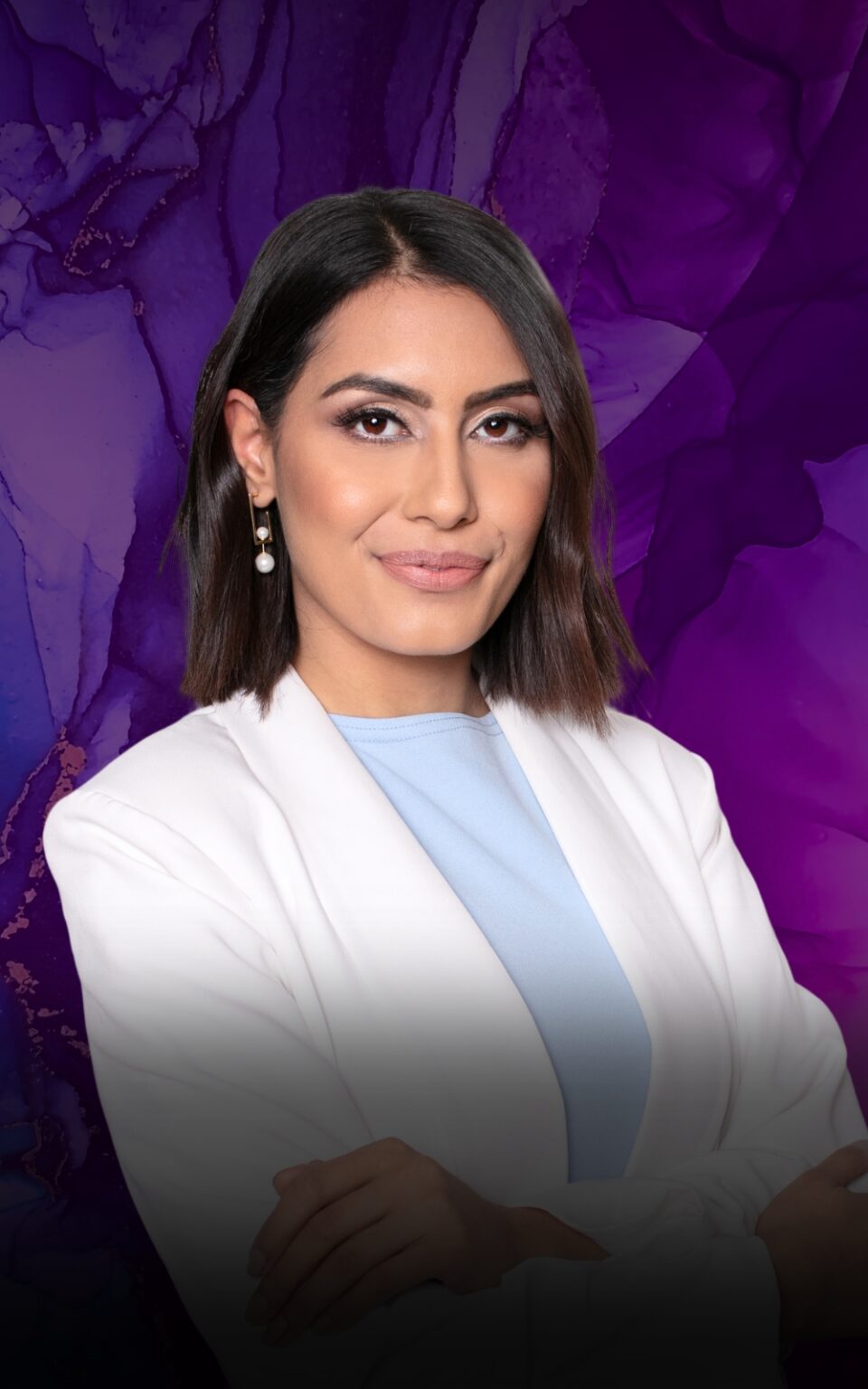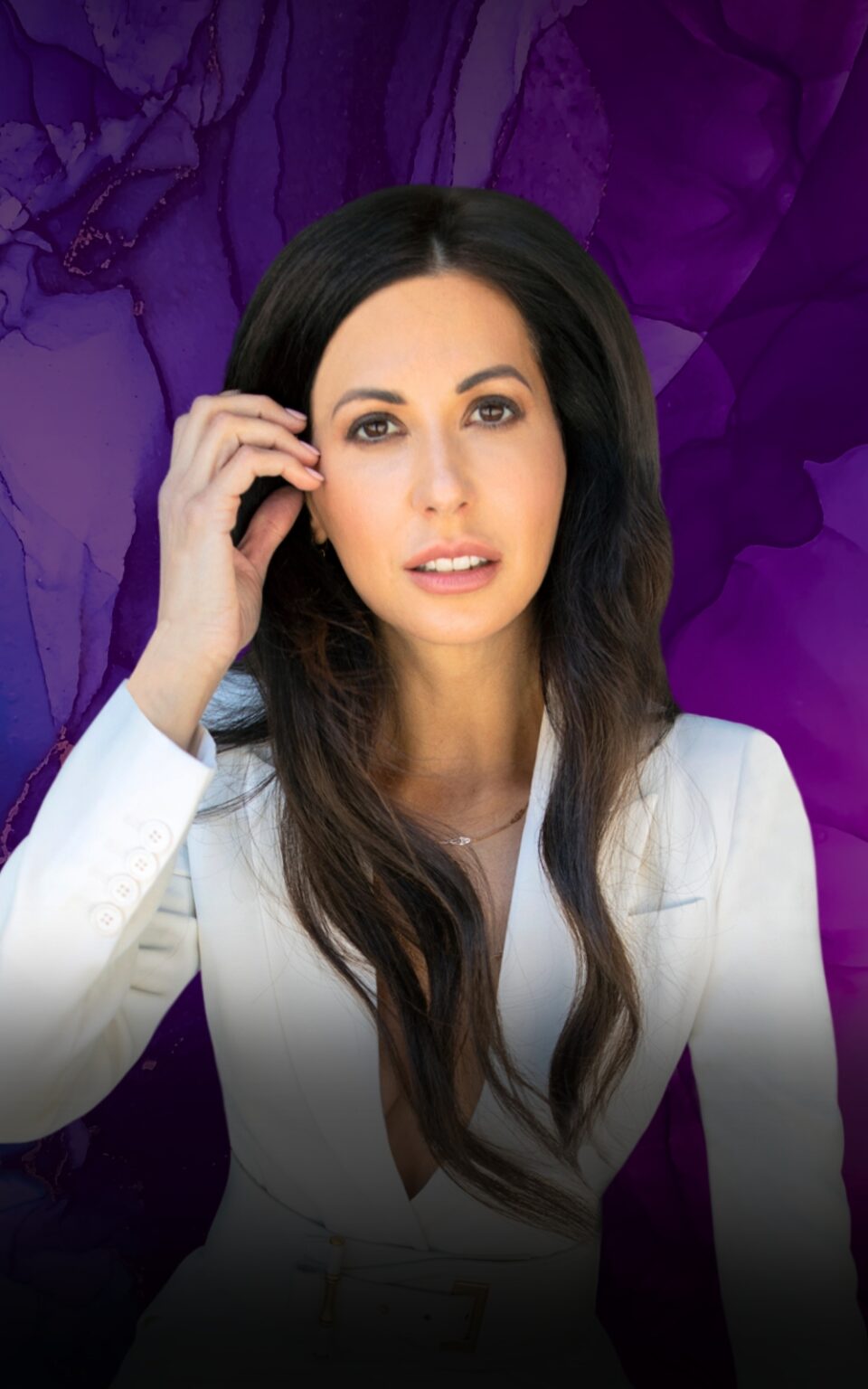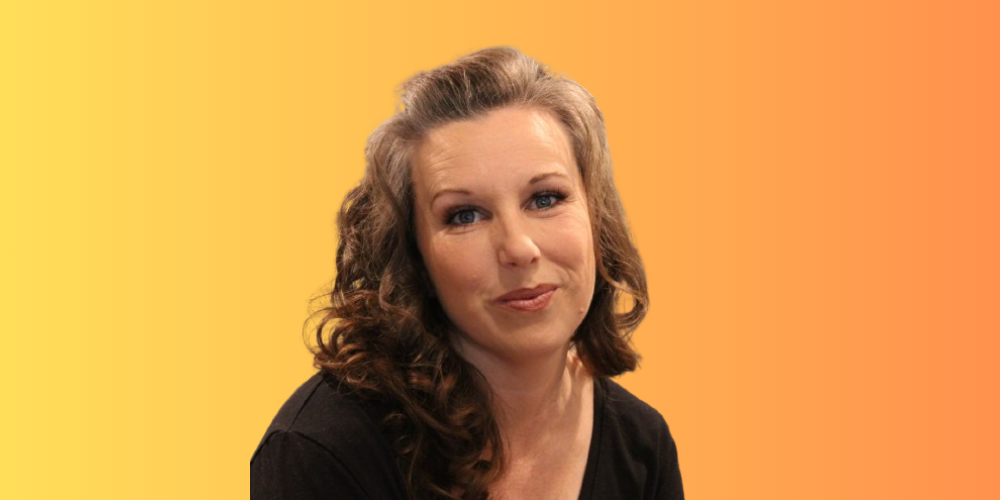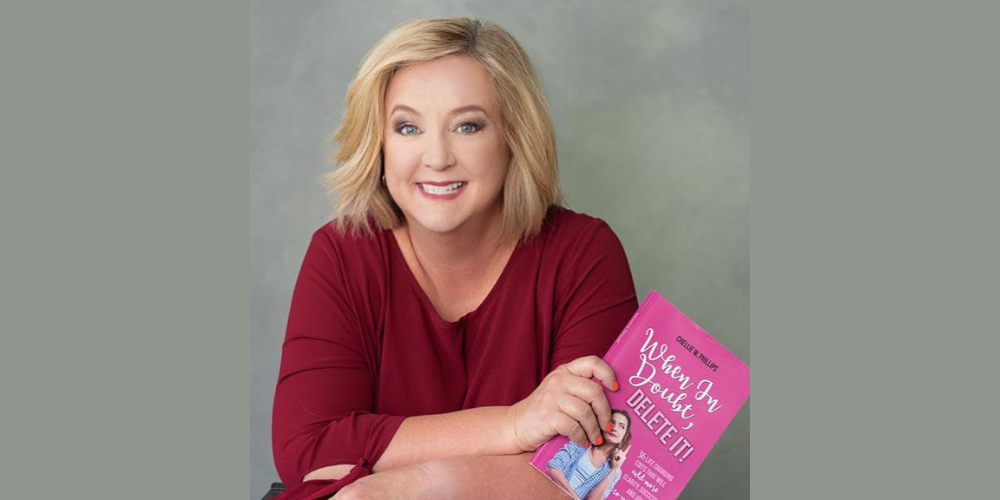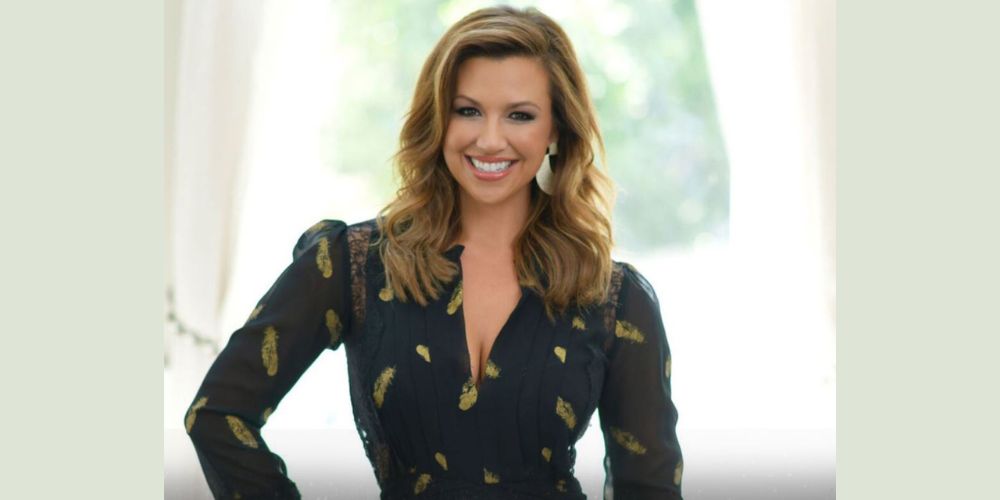Raj Girn: For anyone that’s just tuning in. We are talking to Rohit Bhargava. He is a multiple best-selling author. His wheelhouse is around marketing, branding and many, many other things. He also has this incredible company, the Non-Obvious Company, which I would love you to also tap in a little bit about that. But before we do, can you let anyone out there who is an aspiring author or perhaps is looking for their next opportunity with the next book? What’s the name of your company and how can people get a hold of you?
Here is Part Two of our conversation:
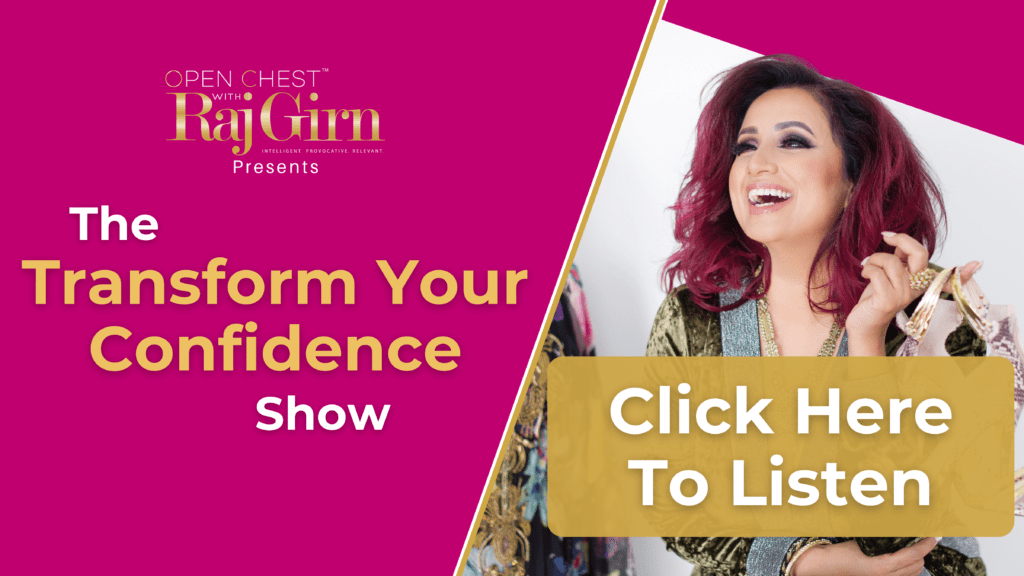
Definitely there’s a way to submit that so that we can take a look at it. We’re sort of flooded at the moment, but we will get back to you. We’re sort of making our way through everything.
What a great problem to have?
During the pandemic it’s like people were grounded and a lot of people decided, rightly so, that they were going to use the time to write the book that they had in their head.
Absolutely.
“I firmly believe that great leadership and advocacy is predicated on the mission that everyone must benefit across the entire food chain.” ~Raj Girn
I think that this is not just for us. I think that in the publishing industry, across the board, in terms of sales numbers, 2020 was actually one of the best years for publishers.
Wow, That’s interesting.
They are just selling books, certain types of books. So it was sort of a flip industry in that sense, but that’s how to get information about that. The Non Obvious brand has lots and lots of different elements. We have a book awards program. I host a weekly show called `The Non Obvious Insights Show.` We have guide books that compete with the Dummy’s guides that are on a guide series. And one of them is actually all about marketing and branding. So a lot of what I shared here, the Non Obvious Guide to marketing and branding has all of those things, including playbooks and one page marketing strategy templates and all that stuff. So super easy to just get that and you can basically get everything I’ve been sharing with you in a book format.
That’s incredible. And how can people get a hold of this?
All of that will be in nonobviousguides.com or nonobvious.com. It has kind of everything linked from it. So it has the books, the book awards and then we also hosted a few summits. We did a Diversity Summit recently that you know about that’s linked from there as well. So there are just lots of different elements of this whole Non Obvious brand, and that’s all from there as well.
“The publishing company is called IdeaPress. The website is ideapresspublishing.com. You can see all of our past books there and you can also get instructions if you do have a manuscript that you’d like for us to consider.” ~Rohit Bhargava
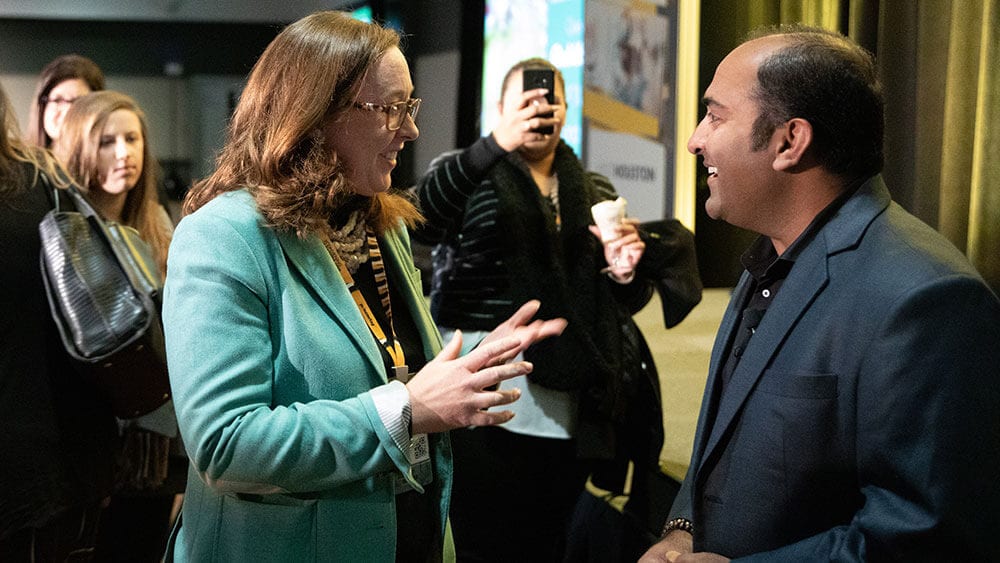
Credit: PCMA
Can you just share a little bit about the premise and idea behind the Non Obvious concept? Because I know what it is and I love it, and I’d love people to know a little bit more about it.
Yeah, the Non Obvious brand is essentially about getting people to be more open minded, and to teach them how to do that in order to be more successful in business, in life and personally. I personally think that people who are open minded, they’re able to be more resilient, they’re able to adapt to the world around them. They’re less likely to get into trouble for various things, and they just are better leaders in general. And so the brand, Not Obvious, is all about inspiring more of that. We help people to be more interesting. We help them to be more open minded, and we share content, we share lessons, we share books. And just lots and lots of content around this idea that the more non obvious people out there are in the world, the better the world will be.
“People who are open minded, they’re able to be more resilient, they’re able to adapt to the world around them. They’re less likely to get into trouble for various things, and they just are better leaders in general.” ~Rohit Bhargava
Right. Amen to that. And what I’m hearing you say, Rohit, for me, which is so fundamental, is you are arming people with tools and resources to help them grow in whatever direction it is they’re looking to grow in. That’s what I’m hearing you say.
That’s exactly right. And I think that a big part of this brand is to remind people that it’s not just certain types of people who can think this way. I spent a long time doing a lot of trend work. People have called me a futurist in the past. And there’s a temptation when you see people like that who kind of predict what’s going to be important and talk about trends, that you look at them and say, “Oh, they’re the ones who can do that because they have a special skill set in doing that. That’s not something I can do.”
And the Non Obvious brand has always been about teaching people how to think in this way, to see the unusual, to spot those patterns, to put those pieces together, because I think that it’s something that all of us can learn how to do. And I’ve seen that over and over again with people who think I’m not particularly creative in that way, I don’t describe myself in that way. And yet when they start to use some of these techniques, they all of a sudden get access to ideas no one else is thinking of. They find the intersections between industries and they really shift the way that they think. And it makes them more successful because if they’re working for someone else, they become more indispensable at work. And if they’re an entrepreneur who’s starting their own thing, they differentiate their own thing more easily because they can see the opportunities that maybe they were missing before.
Right.
It’s interesting you’re saying that ,because this word that people are throwing around a lot now, which is “intrapreneur,” and I love that word and I love the idea behind it. Because it’s very different from kind of the industrial revolution where every single piece of the infrastructure depended on each other and your value was just housed in that one arena.
“We’re living in a world where a lot of the disruption that’s happened. It has happened by people that don’t come from huge organizations. It’s come from people who had more of a whole mind approach to their creativity. They’ve allowed themselves to be able to look beyond what they’re being taught in colleges and universities.” ~Raj Girn
And I know that’s a whole other discussion that we can have. But, this whole idea that if you’re the person that is employing people or you’re the person that is being employed, that is one part of the relationship. And the other part is what are you doing when you’re there? Because, and I feel oftentimes that I do this in my own company; it’s why people work with me for so many years, I really do believe in empowering them with what they need to do that job. So I don’t feel I’m the person that knows how to answer that question better than they do. So to me, it’s like without even knowing what that would ever mean, it’s what I’ve always been doing.
Yeah especially when it comes to coaching, right? That’s what people are looking for, because the difference between oftentimes coaching and consulting is we hire the consultants to tell us the answer. And we hire the coaches to help us find the answer for ourselves.
And that’s the difference.
Yeah, they’re actually different skill sets, right? What I found is the people who are amazing consultants are oftentimes not very good coaches and vice versa. And so it’s really difficult to find people who could be both. What ends up happening, I think for a lot of people who go independent, and who do find their calling in helping people and businesses, is they start to identify for themselves what do they find more fulfilling? Do they find it more fulfilling to really get in and be a problem solver? Because some people have that problem solver mentality. They’re great at it. They could look at the business marketing consultants specifically, could look at somebody’s business and say, “Look, this is the reason why you’re getting dominated by your competition. If you change your message to this, if you put ads over here, if you change your brand to see this as a leading message, you will transform your business and you’ll grow.”
If someone does those things and takes advantage of those things, they will grow their business and their marketing will be much better, which is different than the coach that comes in and says, “Look, you need to inspire your team. You need to be a better leader. And you already know that I’m not telling you something you don’t know, here are the ways that you could do that.” It’s more focused on developing the self. The great coaches find that really fulfilling. They don’t need to go in and fix the problem. They’re more about helping to sort of bring that person along on a journey and be the one who can sort of show them the next thing that they need to do.
“[Coaching] is more focused on developing the self. The great coaches find that really fulfilling.” ~Rohit Bhargava
Absolutely. And it’s interesting because I have done both, and I think that the things that I’ve learned from it has been when do you need to do which. I think that’s kind of what it comes down to. At what point do you truly need to come in and help people navigate what’s going on because they don’t have the infrastructure to do it? And at what point do you know that if you ask the choice questions and help them expand their vision on something that they can very readily come up with, where they need to go? And I think that that’s what my experience has been.
I don’t know about you. I mean, what’s your experience been? Because I know that you’re also a professor. So, you come at it from a teaching perspective. But teaching is also kind of like being a coach and a consultant and a mentor, depending on what you’re looking to accomplish with your students. Talk a little bit about that as well, because you have your fingers in so many different areas, which tells me that there’s a lot of different modes of expansion even happening to you along your journey as a professional.
Yeah, it really has been amazing for me as an entrepreneur, having two businesses that really bring out two different elements of me. So when it comes to the Non Obvious Company, a lot of what I do is speaking, facilitating, being out there as the guy, so I get to be in front and center. Before the pandemic, I was on big stages. When they eventually come back, that’s where I’ll go back to, probably less than before, because now I’ve realized how much I like actually being home and not traveling to 50 events a year. But that requires a certain type of personality. You have to be out there. People want to talk to you. You have to love talking to people. You have to be or make yourself more extroverted in how you behave. To live up to that, you need to have an ego, not to be an asshole, but you need to feel like you belong on the big stage. Otherwise you can’t come on the big stage.
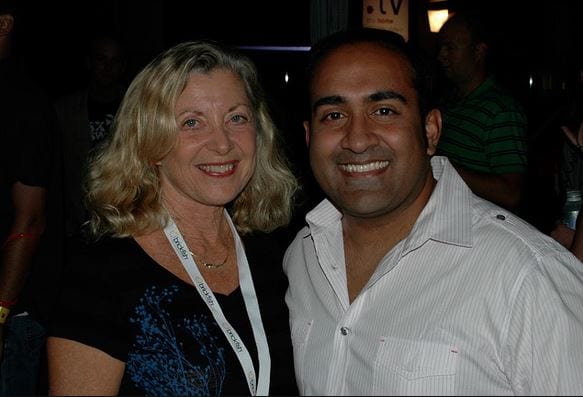
Credit: BoomerTechTalk
And then I’ve got the other company, the IdeaPress Company, which is behind the scenes. I mean, when you publish someone else’s book, your name’s not on it. You’re not the person in front and center. You’re behind the scenes and you’re making sure that everything is going well and you’re making them the hero of it, which is what great coaches do. And so for me, I get a chance. And similar to professors, the good ones, they focus on the learning of the student instead of trying to be a rockstar professor, which is about them. So for me, the nice thing about having both of those things is that it allows me to have my fix of being the one on stage to get your ego fed, but not to be reliant on it and to be okay when you’re not that person, and when you need to be behind the scenes and you can shift yourself to actually be that person.
And what I find is that a lot of times when you look at people who become rockstars or music stars, they never find the balance because they’re always forced to be that person out there and they get treated like that person. And eventually they turn into assholes because they’re surrounded by people who are constantly pushing them to be that way. And for me, what I found is great a benefit in not always having to be that. I can be that sometimes, but it’s for me, it’s more like something you step into and you can step out of.
And I’ve never been to the point, in what I do, I’ll never be at that point where, paparazzi follow me around or anything like that. So, like, that’s an extreme.
Hey, you never know. Never know.
I’m pretty sure it’ll never happen to me. And I’m good with that, I don’t want that kind of life. Because being known and being recognized is one thing. Like, if I travel to 50 events a year and once or twice a year, somebody recognizes me at the airport, I’m good with that. That’s enough celebrity for me. I don’t need any more than that. That’s good.
Yeah, absolutely. I love that. And you know what I’m hearing you say here, just for anyone that’s joining us is, that you need to be honest about the person that you are, and that’s the best way for you to be fulfilled as the person you need to be. Sometimes you want to be in the limelight, other times you don’t. And there’s so many variables in between all of that.
“You need to be honest about the person that you are, and that’s the best way for you to be fulfilled as the person you need to be.” ~Raj Girn
I think it’s about being honest about what you need and why you need it, and then doing the work to make it happen or finding the resources to help you propel yourself. And these are the kinds of things that I feel are important for us to know in life. Because another thing I notice a lot, especially in social media, I know you notice this a lot as well, is how people just love to bandwagon off of something that happened to work well for one individual. And somehow this cookie cutter ideology is not working for you. Therefore, you feel that you are less of a human being than that person is when, in fact, what the goal we should have as humans is to be honest about what our needs are fundamentally as, who we are as an individual. This is before we can kind of step out and see what are the tools and resources available to me out there, that can help me get there instead of doing it the other way around.
That just is a philosophy that I really do believe in because I’ve been both versions of that. And I know which one has actually empowered me to be the person that I’ve become more than anything else, if you know what I’m saying. I know you know.
I mean, look, I totally did. My relationship to social media has sort of shifted as well. I mean, I used to check it a lot more often, and now I was kind of joking with my wife about the relationship that I have to Facebook is now the same relationship that I have to getting a dental cleaning, which is like, you know your teeth feel good afterwards. They feel really clean. You know it’s something that you should do. But during it and leading up to it, you’re not looking forward to it. And you know that even while it’s happening, you still probably won’t feel all that good. And so it’s just something that you have to do. But you wouldn’t do it every week and you wouldn’t do it every day. And so for me, I check Facebook now maybe once every two weeks, and that’s plenty for me. I don’t have it on my phone. I barely have it on my computer. And it automatically logs me out every time. So I have to find my log in to actually log back into it.
And the good thing is, that’s a good problem to have.
I mean, it’s intentional that I set it up in that way. And so because Facebook was the major time suck, that was the major problem. I find that even when I have Instagram, I don’t tend to really check it all that often. And so I do have that on my phone, but that’s three clicks away.
But you’re a LinkedIn man. That’s your thing.
LinkedIn I do check because it’s self reinforcing because the people who contact me, it tends to be about business things that drives my business. I’m an entrepreneur. I’m looking for new customers. I’m looking for new connections. So that is the place where I do tend to connect with people. But even there, I don’t waste a lot of time there. I really am specific about limiting my engagement amount of time that I spend on any of these different platforms, because otherwise you really get sucked into one.
It’s like the thing your mom always used to tell you. Like, you don’t sit there eating ice cream from the actual thing, right? Because you don’t know how much you eat. You always take it out, you put it in a bowl and that’s how you should eat anything. So otherwise you don’t know what you eat. And social media is kind of the same thing. If you don’t set yourself a time limit or at least find some way of limiting yourself and then teaching that to your kids, you just end up sitting there and you don’t even know how much time’s passed. It’s not good.
Absolutely. Well, as a serial entrepreneur, I want to pick your brain on one aspect, especially since we’re living in the world that we’re living in right now.
I mean, if a person is looking to go into business for themselves, because a lot of people are looking at that as being the way forward, because a lot of people are losing their jobs, and there’s just not a lot of opportunity to be hired as it was previous to the pandemic. So especially since now we are suffering from the repercussions of a pandemic economy, which has two major work related effects, people losing jobs, as I mentioned. And, there’s a need to solicit businesses online now, right, because the brick and mortar is not as available to us as it was because of this.
So I guess my question for you here is twofold. The first part of that is what is it that they should be looking at if they are looking to market themselves to find a job online? What should that person be doing today?
So I would focus on a few things. Number one is teaching myself the things that I don’t know but should know. And when I focus on that, for example, when our whole team was doing a lot of work to put together this summit that we decided to do, which was a virtual gathering of more than 200 speakers on many different topics related to diversity, my network of people that I already knew was pretty much exhausted after I got my first 25 or 30 speakers.
And at that point, I had to go, and although I wasn’t looking for a job, I had to go and start learning because I knew in my head, for example, “Okay, I want to have an amazing conversation about diversity and fitness and health. Who’s talking about that? Who’s known? Who’s getting a lot of engagement? Who’s written a book about it? Who has been talking about it on social media? Who has been on the news about it?” And as soon as I started learning about that, I started identifying, “Okay, these people are talking about it. This person is getting a lot of traction. These are the people who I might want to invite and who I might want to talk to.”
And by doing all that research, if my goal had been different, if instead of saying “Okay, I’m putting together a great panel and who should I be listening to, my thought was I want to get a job working in fitness,” I would do the same thing. I would go out and I would try and learn who’s talking about it? Who’s engaging? Who can I start to connect with? Can I comment on their posts? Can I become known by them so that when I reach out to that same person three weeks from now, four weeks from now, and I say, “Hey, I’ve been following you for four weeks, I’ve read every single thing you’ve ever done. I’ve watched every single second of every video of everything you’ve posted. You are brilliant. I love you. I’m trying to find a job in this. Can you suggest something for me? I just want to get into this space. I’m a huge admirer of yours. Can you help me?”
You’d be amazed at what sort of response you would actually get from someone when you did the work. You might be thinking about this strategy and saying, “Oh, screw that, I’ll just go and email 12 people because my chances will be 12 times better,” right? Wrong. The reason this works is because you did the work. You spent four weeks almost not quite, but almost cyberstalking that person to know everything that they did so that when you do reach out, you actually are a fan. You’re not pretending, and that shows up and that pays off because you would be amazed at how few people do that.
Actually, I didn’t know anyone that does what you just said. It’s an amazing strategy and it makes sense. Because if a person sees that you’re truly bought into what you’re saying, and no one’s anyone’s fool, not in today’s world. Kids can spot a fake a mile off, let alone an adult who is trained to do that, especially when you get to a certain position in your professional career. So I think that’s a really, really great takeaway for everyone out there, because why is it that we have to do it, “more is better.” It’s not always “more is better.” Sometimes it’s “more impactful is better.” And that’s kind of what I’m hearing you say here Rohit.
Yeah. My favorite story that I tell, I used to tell on stage back when I was going on stage, was about Einstein. And everyone knows the story of him writing his special theory of relativity. And you might know what he was doing at the time, which is he was a patent clerk. But the question I always ask to audiences and nobody knows the answer is why in the world of physics at that time, in the early 1900s, would anybody who was a serious physicist take seriously someone who was a patent clerk, who was not a physicist, who wrote an article that got published in a German physics journal saying everything that you all have been studying for years is actually wrong, and this is correct. Why would anyone believe that person? Doesn’t make sense.
And yet Einstein was not only believed, but celebrated within his lifetime. And the world of science is filled with people who were right about the world being round, but they weren’t appreciated in their time. And then after they die, they get recognized and they were ahead of their time. But that didn’t happen to Einstein. And the question I always ask people, “Why not?” And people don’t realize that the reason that Einstein was recognized is because he found one guy, the one guy, and the one guy that he found — his name was Max Planck. And Max Planck was a legend in the world of physics. Max Planck read Einstein’s paper and said he might be onto something. And it was Planck who helped Einstein get the first professorship that he got. And the two were lifelong friends, even though Planck was, I think, 20-something years older than Einstein.
“How many people do you need to start your business or to help you take off? Maybe just one if it’s the right person.” ~Rohit Bhargava
Right. And that’s the fundamental picks. And guys, this is really something powerful.
I really hope that you are reading and making notes and that you stick with this idea of less is more or is more less? Really think about what it is you’re doing and what you’re looking to accomplish, and what would be the best way for you to accomplish that. And as Rohit just mentioned, Einstein didn’t go and try to prove it to the world. He just had to prove it to the one person that has the power of authority.
The other piece that I wanted to ask you, if there was just someone who is looking at starting a business, how do they find the gap in the marketplace? Like what are some things that they can do to figure that piece out?
The absolute best way to find a gap in the marketplace is to become a customer yourself and to experience the gap for yourself. So, we started the publishing company because I was an author who wanted something that didn’t exist. And I decided, along with Chavvi, my wife, to start it for ourselves. And that, to me, is a undeniably good way to figure out a gap in the market because you experience the gap and the need for something through your experience of not being able to find it.
“The absolute best way to find a gap in the marketplace is to become a customer yourself and to experience the gap for yourself.” ~Rohit Bhargava
And if you watch any of these shows like ‘Shark Tank’ or any of that kind of entrepreneurial shows, you’ll see so many of those stories are someone said, “Hey, I’m a mom and I wanted this to be available and it wasn’t, so I made it.” It’s a very successful entrepreneur’s journey way to start. It’s not the only way to do it, but it’s proven over and over again that it actually does work.
So Rohit, considering the rates at which new businesses fold outside of even the current pandemic-induced circumstances, how do you see sales and marketing working together to maximize revenue goals? I mean, some sort of a simple formula, because obviously, things depend on so many variables. What would you say could be a simple formula that people should consider, especially if they’re a commercial business enterprise?
Yeah. So my best analogy for sales versus marketing and how they should work together is, if you imagine you have a car dealership, the marketing is what gets people in the door to even try the car in the first place. The sales is what closes the deal. So you can get people in the door through all sorts of different ways. But eventually, when they get in the door, they’re going to sit in the car. They’re going to listen to the sound the car door makes when it shuts. They’re going to take the test drive. And if they don’t like the car and if they don’t like the sound of the car door when it shuts, they’re not going to buy the car. So you’re not going to convert. Now, that doesn’t mean your marketing didn’t work. It means your sales didn’t work. And it means your product is not good or good enough for that person.
So the challenge, I think, for us as business owners is to fix what actually needs fixing instead of blaming the wrong thing for not working. If you have marketing that’s bringing people to your website and nobody buys anything, that doesn’t mean your marketing is not working. It means something on your website is not converting. And same thing, if you actually have a physical storefront, the marketing gets people in the door. It gets them to pick up the phone and call. It gets them to your website. What you do from there is all about conversion and you have to be able to convert to whatever the action is that you want people to take, whether it’s booking an appointment or buying a product or walking through the door, whatever.
I have so many questions that I could still ask you, but I’m going to wrap it up now with my final question Rohit. What should businesses be doing to get more clients right now during a down economy? One or two things.
I would say focus on giving enough so that you create more of a relationship with people. What we have focused on with the Non Obvious brand over the last year has not been about generating revenue, it’s been about creating more useful content. It’s about having more conversations, and it’s about growing our audience, because I know that if I have 25 people on my list or if I have 50 on my list eventually, when I’m going to sell an online course or if I’m going to promote a book, I’m going to get more people who actually buy that than if I have more people that I’ve given value to over a set amount of time, because I’m constantly giving them things.
So every week I’m writing a newsletter where I’m finding the most interesting stories of the week and I’m sharing that newsletter and nobody pays for it, because I’m continually giving them value. And I’m spending hours and hours every week to find those stories because I’m building that relationship with all of those people who then are followers of me or followers of my brand. And eventually when I do have something that I need their help with, I ask for their help and they’re happy to help because they’re like, “Look, I’ve been reading all of your insights. They’ve been useful for me. I’ve shared them with my boss. It’s made me look good. It helped me get a promotion. If you want me to buy a $15 book, I’m in,” right?
I love it. How can people get a hold of you Rohit?
My personal site is my full name: rohitbhargava.com. Or you can go to nonobvious.com and to see all of the different things we’re doing there. I’ve got a YouTube channel, lots of old videos and interviews and things like that.
And again, every week I’m doing a new show for the `Non Obvious Inside Show` so you can find me there or on pretty much any social media platform that you use, I’m probably there occasionally.
I love that. Well, thank you so much for your time and for your valuable insights, Rohit. You know that I’m going to ask you to come back. There’s so much more that I want to be able to give value to the audience wherever they are in the world, listening, watching or reading this as a blog. I thank you so much for your time. And come back. Come back and see us.
Of course I will. Thank you, Raj. It is fun to talk to you.
Likewise.
Thank you so much for staying until the end, guys. I really hope you enjoyed this show will action the many insights that were shared. If there’s one takeaway that you know I always share at the end of each and every show is this that in order to create a bulletproof strategy, you must marry knowledge with action and accountability. Without these working together, you are limiting your capacity to actualize your greatness. And trust me when I say this, I know what it feels like to be on both sides of that fence. So if you’re at a point in your life where you’re struggling to figure out how to action the next really, really great growth journey in your life, I want you to keep tuning into this show because we will be bringing multiple different ways that you can action the knowledge that we bring to the table.
“In order to create a bulletproof strategy, you must marry knowledge with action and accountability. Without these working together, you are limiting your capacity to actualize your greatness.“ ~Raj Girn
You can find accountability through the insights and through the wisdom that is shared, because at the end of the day, without the action of the knowledge and the accountability to support that finding, that next level of growth in your personal and professional greatness becomes a really challenging journey. And I’m of the firm belief that if you want to ensure that you’re able to get to that next level in your life, that there’s certain things that have to be in place. One is you need to have a vision of where it is that you need to go. Second, you need to have some sort of a guru mentor guide who is already where you’re wanting to go and can help you action the steps from where you’re at to get to where you want to go, which is where they have got to, have already been or they have gotten beyond that phase.
And then the other thing is, and I’m a true believer in this, is that when you get there, I really do feel in order for you to be able to maintain a sustained way of ensuring that you continue to be able to excel to the next level is another form of energy that’s important. And it’s called service. It’s the give back, the give back for me in my life and in the life of many people that I’ve actually worked with and seen greatness happen in those. People that we look up to and we aspire to be like the people that we feel are the untouchables, they are very touchable because what they’ve accomplished is something that each and every person out there listening to this, watching this or even reading this on our blog, you can take those steps and you can implement them.
You can action them and you can get to where you need to get. Because if one person can do it using that formula, so can you. So, I want you to think about that. The only difference is this thing, other variables that you have to think about, things like where are you at in your journey? What are the tools that you have at your disposal? Where can you go to get more tools to be able to give you the proper road map to get to where you need to get to? What are the mechanisms that you need to ensure that you have the motivation and the drive is consistent for you to do the work to get there?
These are some of the things that I have really kind of tapped into and honed in on and there the things that I want you guys to kind of sit with. And I want you to take away with each and every show with this knowledge. And if this show or any other show has been of any value to you, I want you to do one thing for me. I want you to share with everyone you know that you feel this kind of show would benefit. And I want you to invite them to our YouTube channel where all episodes are housed at The Open Chest® Confidence Academy. And I also want you to go and tell them to go check it out on podcast stations. And there you just need to search for the ‘Transform Your Confidence Show.‘ All right, guys, as always, I hope you have a great rest of your week. And I look forward to seeing you next week when I have another great episode that I feel is going to be very valuable to your journey or to someone that you know.
Until then, have a great week.
To Contact Rohit Bhargava: Email: [email protected] Social Media: Facebook, LinkedIn, Twitter.



